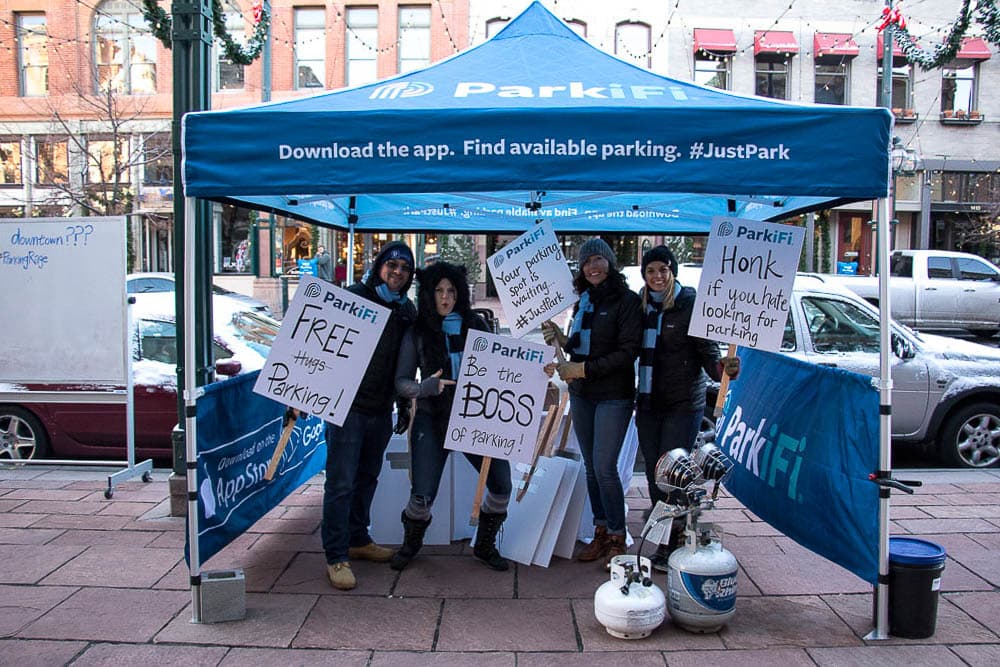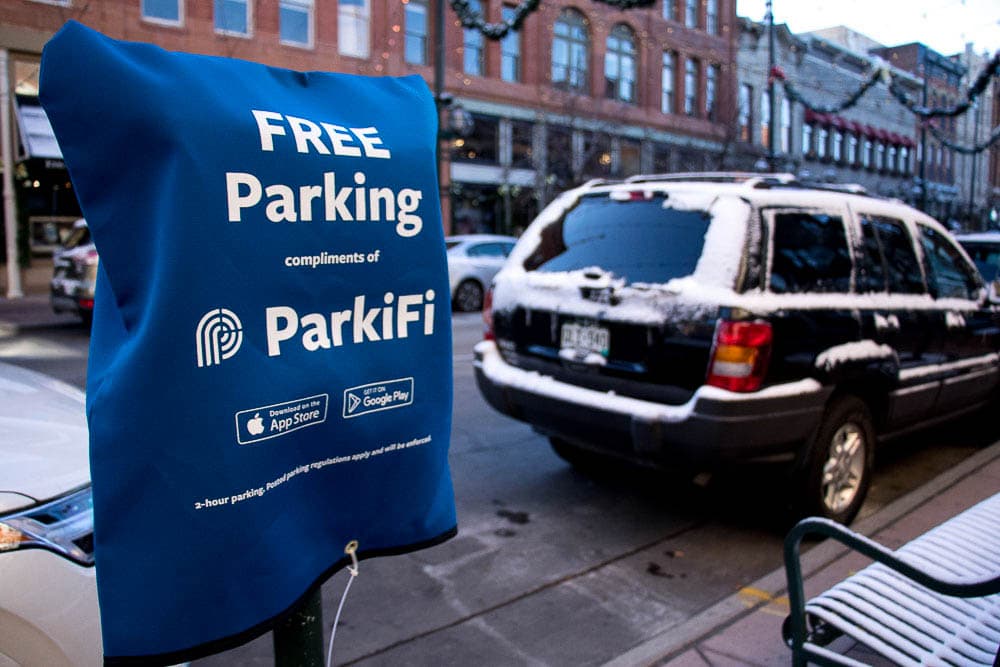STARTUP OF THE WEEK: parkifi

In this series, we visit Denver-metro, Boulder and Rocky Mountain region startups. Contact [email protected] to be considered.
ParkiFi launched Tuesday in Denver with the goal of changing the way urbanites park.
The startup, founded in August 2014 by SendGrid expats Ryan Sullivan, 31, and Rishi Malik, 33, has been widely praised for the parking capabilities it offers, even in advance of the November launch of the ParkiFi mobile app.
The ambitious company has raised a total of $13.5 million in venture capital and was named one of the 2016 Denver Gazelles — a list of the fastest growing Colorado companies with proven success and good potential for fundraising and job creation.
But how did this startup, all but unknown before summer 2015, gain so much momentum so quickly?
“The gravitating aspect of ParkiFi is that there are very few people who don’t feel the pain point of parking,” Ryan Sullivan, CEO and co-founder said. “It’s such a universal problem that people want to see solved.”
ParkiFi’s mobile app enables users to quickly locate available parking in proximity to their destination.
To accomplish this, ParkiFi’s team installed a vast network of low-cost sensors in parking garages and lots in cities in eight U.S. states, including California, Colorado, Georgia and Nevada. Each sensor is about the size of a hockey puck and contains a single processor, a battery, a magnetometer and a radio that it uses to detect whether a car is parked that spot.
“We knew that we needed some sort of hardware to get this done, but we always came in with the approach of, ‘How can we have as little hardware as possible and still solve the problem?’” Sullivan explained.
Instead of a combination of multiple sensor technologies, like infrared and thermal, ParkiFi opted for a single magnetometer, which allowed the company to cut costs by about 90 percent. The industry standard cost for comparable hardware is about $250. ParkiFi's sensors cost about $20 to make.

ParkiFi’s sensors require in-ground installation in the streets or above ground installation, with protective yellow bumpers to prevent vehicles from crushing the pucks, for parking garage installation. So it was necessary for ParkiFi to partner with parking management companies to test the hardware.
As it turns out, forging partnerships wasn’t so difficult. ParkiFi works with private parking management companies and lot owners, like SP+, one of the largest national parking operators, to test its sensors in cities with an array of extreme climates. And parking lot operators have a vested interest in working with ParkiFi.
ParkiFi’s sensors enable the company to collect data on consumer behavior. The data from the sensors can be used to compile analytics about parking trends to map out high volume versus low volume times and estimate how long customers make use of any particular lot.
This information can in-turn help lots adjust costs accordingly.
The low price-point of ParkiFi’s hardware, combined with the utility of the app and the obvious demand for related data has attracted attention from future users, the Denver Office of Economic Development and, of course, venture capital firms.
ParkiFi’s primary funding comes from Grotech ventures out of Washington D.C., and Crosslink Capital of San Francisco.
The locations of the venture capital partners speak to what Sullivan calls Denver’s one shortcoming for local startups.
“From a community support standpoint, it is top-notch, up there with SF in my mind,” Sullivan said of Denver’s business environment. “From a funding standpoint, it is behind. We need more capital here, more true venture capital investors.”
Despite that, ParkiFi is committed to growing their company in Colorado, starting, of course, with the launch of the user experience.

Although ParkiFi has sensors in several U.S. cities, the app will only launch in Denver, for now. But the company has tentative plans to make a quick jump to Boulder before pursuing new markets.
And new updates are coming to the app early next year.
ParkiFi is in talks with Denver Public Works to expand ParkiFi from private lots and garages to street parking. And in February, ParkiFi will be rolling out a payment option, via a partnership with Parkmobile. Sullivan compared the payment feature to highway tolling — only with the ParkiFi app, instead of an in-car sensor.
“You have the app, you pull into a ParkiFi enabled parking spot and we tag the time you arrive and pull out,” Sullivan explained. “You get billed by your credit card on file for how long you parked and you will never have to go to a kiosk or pay a meter or pre-guess how long you will be there again. It will be like the universal parking pass.”
The ParkiFi app is free for users, but the payment option will come subject to whatever fees Parkmobile currently enforces — Sullivan estimated a 10 to 15 cent convenience fee per transaction.
ParkiFi will make its money from the parking lot operators. ParkiFi charges lots an undisclosed referral fee for bringing in drivers. The fee will vary by market.
“We charge the operator every time we bring them a driver, because we are essentially a marketing sales channel for them,” Sullivan said. “If my app that shows availability that causes [a driver] to know this garage has a spot, and therefore, go and park there, I brought [that garage] that customer so they pay me for the customer.”
ParkiFi also hopes to turn revenue by selling the aforementioned driver analytics to parking lot and garage operators.
To celebrate Tuesday’s launch, ParkiFi announced the 12 days of Parking. Product Marketing Manager Leslie James described it as a free parking scavenger hunt. From the Friday after Thanksgiving up until Christmas Eve, ParkiFi will be offering free parking tied to holiday events.

Users with the app can download it to find which lots have free parking for events like Denver Center for the Performing Arts’ Christmas Carol and Denver Downtown Partnership’s Parade of Lights.
“We call it our gift to Denver,” James said.
Founders: Ryan Sullivan, Rishi Malik
Employees: 35
Industry: Parking, mobile app
Founded: August 2014
Launched: Nov. 15, 2016
Funding: $13.5 million in venture capital
Offices: 1451 Larimer St., Denver
Multimedia business & healthcare reporter Chloe Aiello can be reached via email at [email protected] or twitter.com/chlobo_ilo.
Subscribe to Denverite’s newsletter here.












